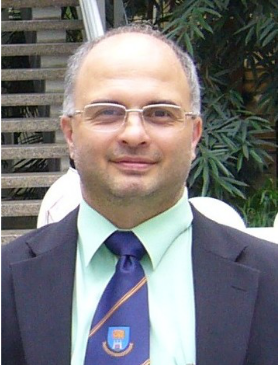
Dr. Petar Sabev Varbanov
Brno University of Technology – VUT Brno, Czech Republic
Title: Brno University of Technology – VUT Brno, Czech Republic
Abstract
Energy – its efficient use in production is key to ensuring the healthy functioning of the world economies. Climate change, together with the haze in growing megalopolises, and water scarcity in many areas are the key environmental challenges of our time. Polluted air and water, especially in places with high population density and high resource demands, have been posing an increasing threat to the mankind. To solve those issues, a complex thinking is very much needed. Traditionally, the involvement of process, mechanical and chemical engineering was considered as a cornerstone of a successful outcome. The close and strategic collaboration from most fields is a strong requirement. The complex systems thinking requires a close synergy of technologists, managers and economists, policymakers and politicians and related social scientists. In this context, ensuring cleaner energy is the necessary condition for cleaner production, especially for reducing the emissions of greenhouse gases and other pollutants, which are directly related to the types and loads of the energy sources used.
They are various emerging methodologies of sustainability assessment. The footprint methodology is one of gaining considerable attention. Greenhouse Gases (GHG – rather than just carbon) Footprint becomes a widely accepted environmental accounting tool for business managers, policy makers and non-governmental organisations, attempting to identify mitigation measures that reduce the threat of climate change. The industry is increasingly engaged as a part of policy development and product design.
This presentation offers a review of the main lessons recently learned in the field of more efficient energy use, the recent development of Process Integration, cleaner fuels and biofuels, cleaner production, CO2 capture, optimisation, water and waste management, including process-level emission minimisation, self-sufficient regions, and industrial symbiosis for optimising usage of waste heat and waste material flows.
As an illustrative case study of a toll following complex systems thinking presents the development of Process Integration. It originatesd from Heat Integration to target the minimum heat requirements and following the demand being extended to Total Sites, Locally Integrated energy systems and even to self-sufficient regions methodology. To cover the complexity with wider scope targeting GHG and haze creating emissions, integration of renewable energy sources, biofuels, waste and effluents supply chains, investment, property and material recovery targeting.
The presentation will be concluded by suggestions for future research and the discussion and exchange of ideas are most welcome.
Biography
Dr Varbanov is Deputy Head of SPIL – Suistainable Process Integration Laboratory, NETME Centre, FME, Brno University of Technology – VUT Brno, Czech Republic. His main fields of activity are energy saving and efficiency, development and implementation of Process Integration, Total Site and regional integration for energy and water – including industry interaction interfaces, retrofit, waste to energy, wastewater minimisation leading to GHG and water footprints reduction.
He has got PhD in Process Integration from UMIST (now – The University of Manchester, UK) with distinction in 2004, on “Optimisation and Synthesis of Process Utility Systems”, completed in collaboration with Aspentech, Shell Global Solutions, MW Kellog and BP. He has been twice the Fellow of Marie Curie research grants – an Individual Intra-European Fellowship Grant for 2 y research at Technische Universität Berlin, followed by a grant for going to the University of Pannonia, Hungary, where he served as the Deputy Head of the Centre for Process Integration and Intensification CPI2 until February 2016, when he won the post at SPIL in Brno, Czech Republic. He has been also an Associate Professor at the Centre for Process Systems Engineering & Sustainability – Pázmány Péter Catholic University.
He has been a long term Scientific Secretary of and recently a Co-Chair of the Conference on Process Integration for Energy Saving and Pollution Reduction –PRES (www.conferencepres.com), member of the International Scientific Committee and chair of the Poster Evaluation Committee of the International Conference on Sustainable Development of Energy, Water and Environment Systems SDEWES international conference (www.sdewes.org). He served many years as the Scientific Secretary of CAPE-WP of the European Federation of Chemical Engineering. European Editor of SPRINGER Journal Clean Technologies and Environmental Policy and Subject Editor of Elsevier journal ENERGY – The International Journal.
He has published over 220 papers listed in SCOPUS, his H-index is 29 and total IF = 252. He is a co-author of two books and several chapters in books. His research has been successfully implemented in collaboration with industrial partners: BP-Coryton, BP-Grangemouth, MOL Százhalombatta,HU, Bayer, DE, IPLOM – Busalla, IT, HUNTSMAN Processing & Engineering – Basel (CH).